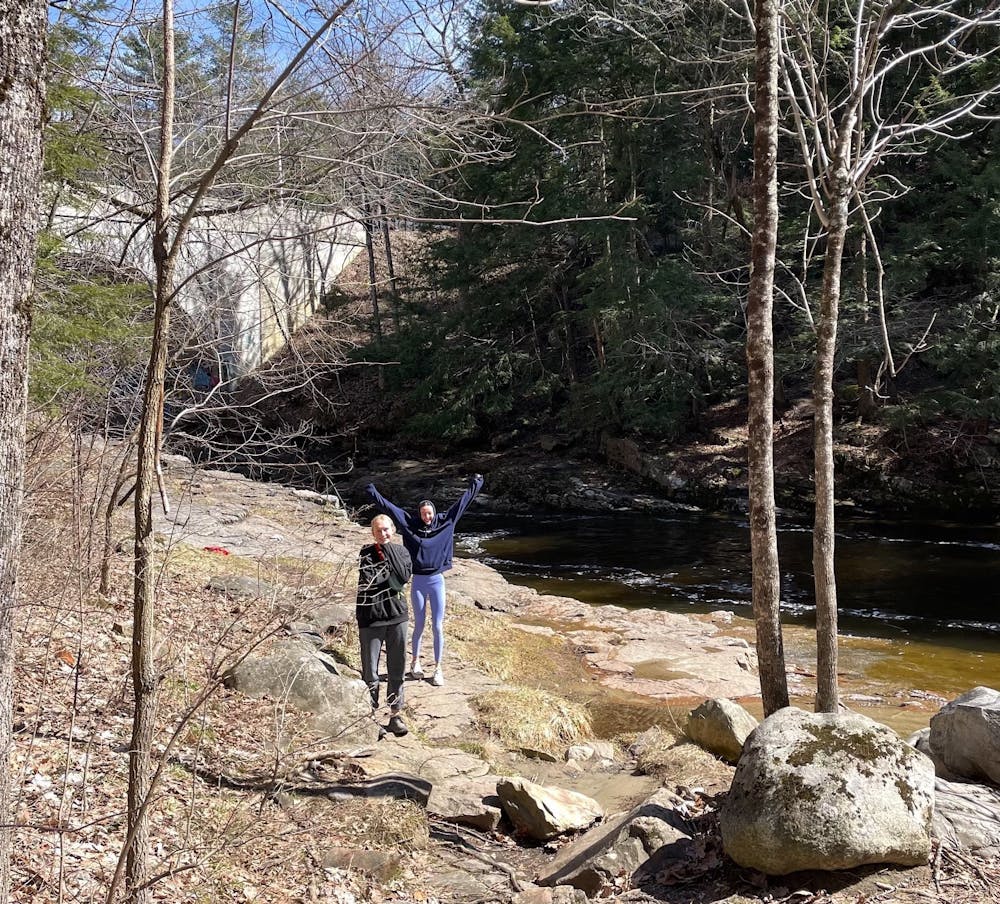The creation of a senior spring bucket list is an equally exciting and daunting task facing the students who will graduate this May. Whether it comes in the form of a mental to-do list or a printed poster hanging on a suite wall, we are all looking for a way to say goodbye.
I, for one, am freaking out about graduating.
I thought having a post-grad plan (better yet, one that is within driving distance of Middlebury) would make the concept of leaving feel more digestible, but it hasn’t. And to those who tell me they are so ready to leave (the very same people whose faces I lie to as I groan in feigned agreement), I applaud you. But I’m spending my senior spring wishing someone would Bill Murray me and let me relive these days over and over again. So consider this an embarrassingly sappy love letter to my favorite place, in the form of a list of all of the things that we need to do before we leave — with contributions from alumni who are inevitably missing the Green Mountains.
In response to a Campus social media blast requesting senior spring must-dos, a *shocking* volume of alumni wrote in with various required hikes. Among the most recommended was Camel’s Hump, a 6-mile out-and-back trail that I have never attempted but which I assume is not for the faint of heart. And for those more amateur hikers who are seeking a good view over a good sweat, the Snake Mountain hike prevails.
Ted Parker ’08 suggested that students “cliff dive” at Bristol Falls. And for students who may be intimidated by the 20-foot jump there, the Gorge on the way to the Snow Bowl offers a much tamer, closer-to-10-foot jump. Others wrote in to send students to Lake Dunmore and Falls of Lana, two slightly more relaxing spring swimming spots.
Alumni also remind us to thank the staff and faculty members who have made our time here all that it has been. Regardless of what these four years have been to each of us individually, it cannot be overstated that a “thank you” goes a long way. All of us graduating this spring experienced not just the Covid-19 send-home of our freshman year but also the locked-down Covid-19 Middlebury of our sophomore year. Our mere being on campus that year was made possible specifically by the Custodial Services staff and by the time that they put in to give us our college experiences back.
The stand-out alumni write-in, however, was not one telling students to rush outside and do everything they could before leaving. Rather, Michael Gaskin ’11 wrote that students had to add reading “The College on the Hill,” to their bucket list.
There are, in fact, two “colleges on the hill,” and both have books written in their honor. So what initially seemed like a joke poking fun at how many students at Middlebury claim to have initially applied to Dartmouth is in fact a genuine suggestion to read a book written for Middlebury’s 200th Anniversary. Middlebury’s “The College on the Hill” can be found in Davis Family Library and online, and it gives weight to what it means to be a Middlebury student.
Through my own research rabbit hole for this article, I took the time to read both Middlebury’s and Dartmouth’s takes on the same title. And Dartmouth’s resonated just the same as Middlebury’s. The book begins with a discussion of what a liberal arts education means, and — though we may think we get it at this point — the words hit home.
“[College is] the growing realization that knowledge is a process and not a fixed thing,” writes author Ralph Nading Hill. Such a statement is comforting at this point in our career: it’s all a process. The ultimate higher ground of knowledge that I, at least, have been under the impression that we are supposed to have reached by now might not even exist at all.
And, to skip ahead, the “Students” section of the book resonates as well. Published in 1964, “The College on the Hill” features dialogue among students who didn’t do their readings, who are homesick — who are just kids, just like we are.
The book, though not about Middlebury, is grounding in that it shows us that wherever we go, our school will still be here to come back to (or to not come back to). And while progress and change at the institution will be an inevitable good thing, this place is not going anywhere. New students that are just like we once were will take our places, and we will carry on too.
So what should you put on your senior bucket list? Definitely some hikes. Definitely some swimming holes. You should read “The College on the Hill” — both versions. You could make a last-ditch effort at reviving the “Like a Prayer” tradition (a somewhat contentious suggestion made by a variety of alumni). An anonymous current senior has declared that they would like to have sex at the Knoll before their graduation day — you can get as creative as you’d like. The only truly uniting sentiment behind the recommendations that The Campus received was the uniqueness and individuality of what people consider sacred as they reflect on their college experiences.
As much as I hate to say it, we are in the last leg of Middlebury. And we are ready for whatever comes next — even those of us who feel like we definitely are not. So put whatever you want on your senior bucket list, but I can say for sure that I am better off having seen a Snake Mountain sunset.
Correction 04/20/23: An earlier version of this article mistakenly stated that Michael Gaskin ’11 recommended “The College on the Hill” by Ralph Nading Hill. Gaskin clarified after the publication of the article that he was referring to a different book by the same name. This error has been corrected.




